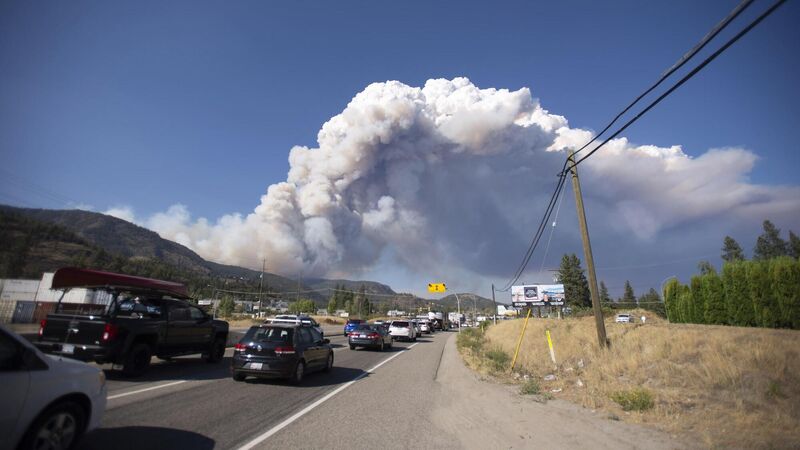Fergus Finlay: What’s stopping us becoming a laboratory for green innovation?

A fast-burning wildfire in West Kelowna, British Columbia. A huge area of British Columbia in Canada is being turned into a smouldering wasteland by the hour.
I’m in Hudson Park, trying to banish negative thoughts, when something Vicky said occurs to me. Vicky is my daughter, and she works in backroom politics (not quite my backroom, alas, but that doesn’t stop her being a progressive and deep thinker).
Before I tell you what she said, I need to explain the negative thoughts. I’ve always been one of nature’s optimists. There isn’t a subject under the sun about which I can’t say “it’ll be all right on the night”. Up to now, that has even extended to climate change.
CLIMATE & SUSTAINABILITY HUB















